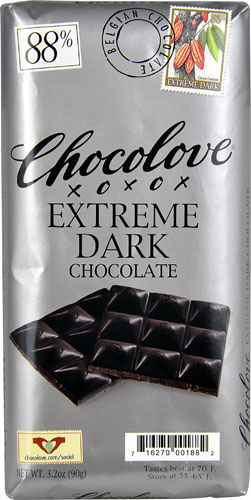In a world where nearly every food we love appears to be bad for us, chocolate might be the glorious exception.
In fact, eating dark chocolate can reduce both stress and inflammation inside the body, while also boosting memory, mood and immunity. Those findings – based on two studies – recently were presented at the Experimental Biology 2018 annual meeting in San Diego.
The research is just the latest to link eating chocolate to certain health benefits. However, before you rush out and buy a Nestlé Crunch or Hershey bar, know that some types of chocolate are better for you than others.
“Several studies have linked dark chocolate consumption to improved heart health and cognition,” says Jen Bruning, a Chicago-based registered dietitian nutritionist and spokesperson for the Academy of Nutrition and Dietetics.
Dark chocolate is high in flavonoids, which are rich in antioxidants. It is believed that antioxidants help prevent free radicals from damaging the body's cells.
Flavanols – the main type of flavonoid found in cocoa and chocolate – are associated with many vascular health benefits, according to the Cleveland Clinic. Such benefits include:
- Lower blood pressure
- Improved blood flow to the brain and heart
- Reduced stickiness of blood platelets, making them less prone to clots
Eating the right chocolate
To get these benefits, you need to eat dark chocolate. Chocolate manufacturers often use processing to tame the strong taste of cocoa, which many people find to be too intense.
While this processing makes milk chocolate and other types of chocolate taste sweeter and more palatable, it also strips away flavanols.
For this reason, skip highly processed milk chocolate and white chocolate, and instead choose full-flavored dark chocolates, Bruning says. "The darker the chocolate, the more flavonoids," she says.
She recommends looking for chocolate with a higher percentage of cocoa -- at least 70 percent.
That jibes with the findings reported in San Diego. Researchers there said that to get the health benefits of dark chocolate, you need to consume varieties made up of at least 70 percent cacao and 30 percent organic cane sugar.
While milk chocolate and white chocolate are OK as occasional treats, don’t expect great health benefits after consuming them.
"Milk chocolate contains more added fat and sugar, and less cocoa," Bruning says. "So, it isn’t giving you the antioxidant punch of dark chocolate."
Meanwhile, white chocolate is mostly sugar, milk and cocoa butter. "It isn’t really benefitting you nutritionally," Bruning says.
Finding the right chocolate balance
Although dark chocolate can pack a healthful nutritional punch, it is easy to get too much of a good thing.
You can safely eat about 1 ounce of at least 70 percent cocoa dark chocolate on most days of the week, Bruning says. "More than that, and the calories and fat start to add up quickly," she says.
The Cleveland Clinic also warns that dark chocolate can do more harm than good if it is loaded with other unhealthful ingredients, such as caramel, marshmallow and excessive levels of nuts.
If you prefer, look for alternative ways to get just a touch of healthful chocolate into your diet, Bruning says.
"Adding cocoa powder to smoothies, baked goods, even oatmeal is another good way to get some chocolatey goodness into your day with less fat," she says.
Bruning says moderation is key for other types of chocolate. This is especially true of white chocolate.
"Make this an ‘on-occasion’ indulgence to savor, not part of your weekly chocolate habit," Bruning says.
If you prefer to skip the chocolate altogether and look for your flavonoids from other sources, the Cleveland Clinic recommends:
- Apples
- Cranberries
- Onions
- Red wine (in moderation)
- Tea




